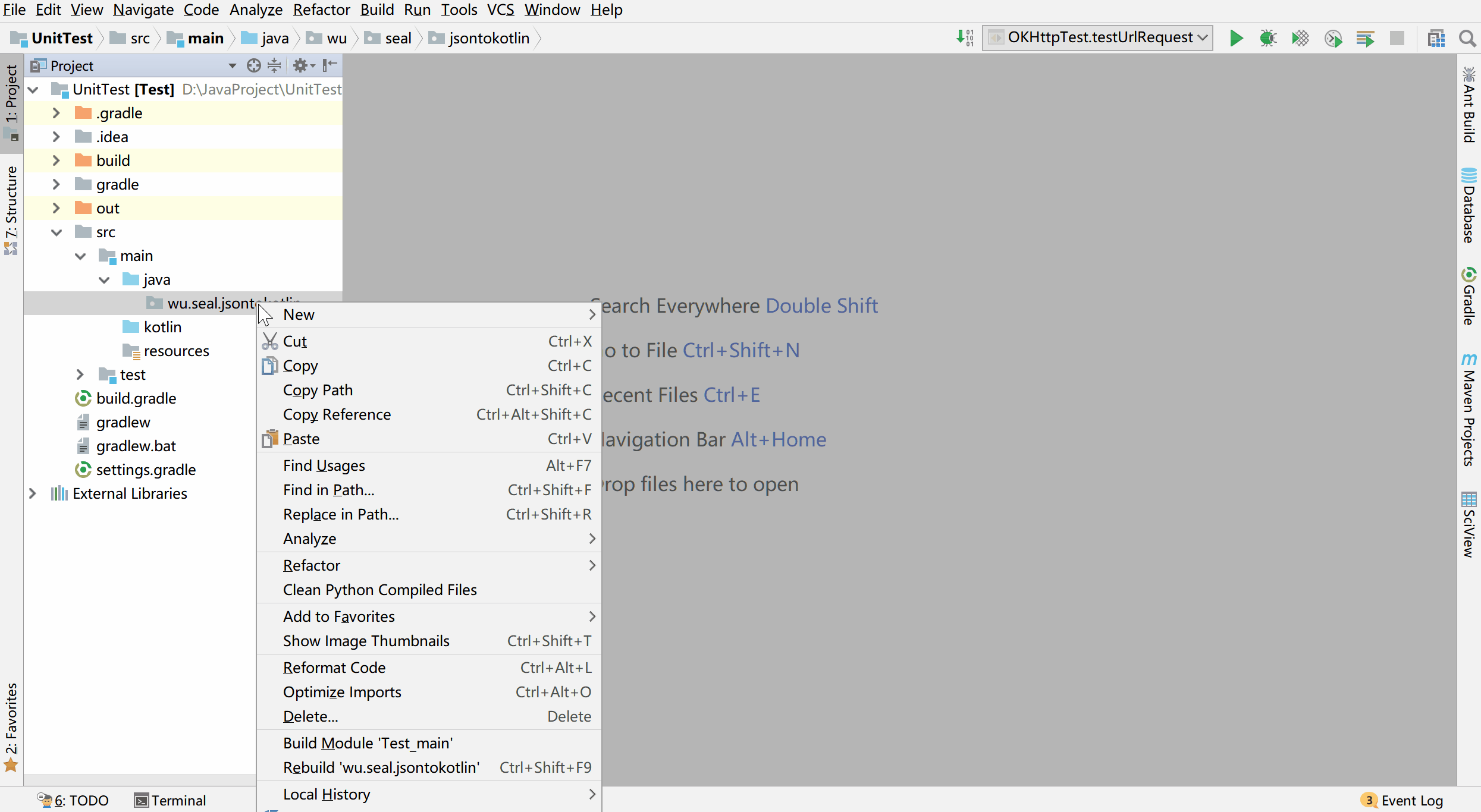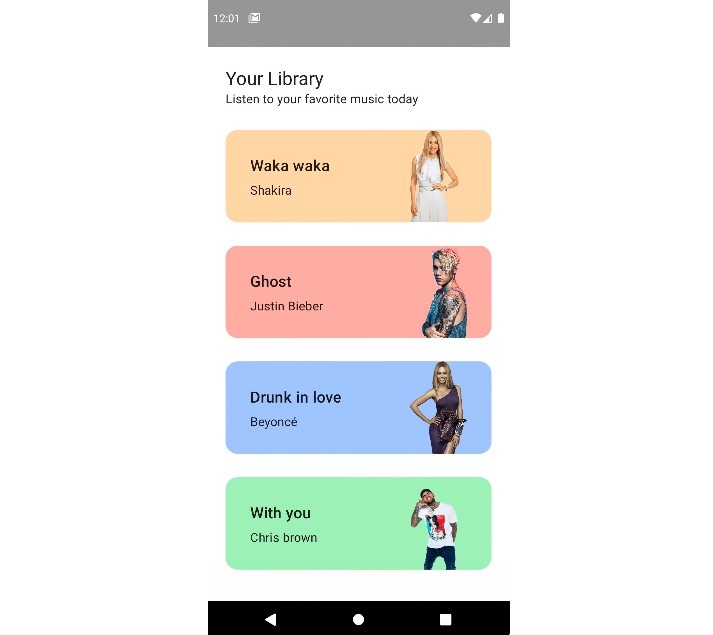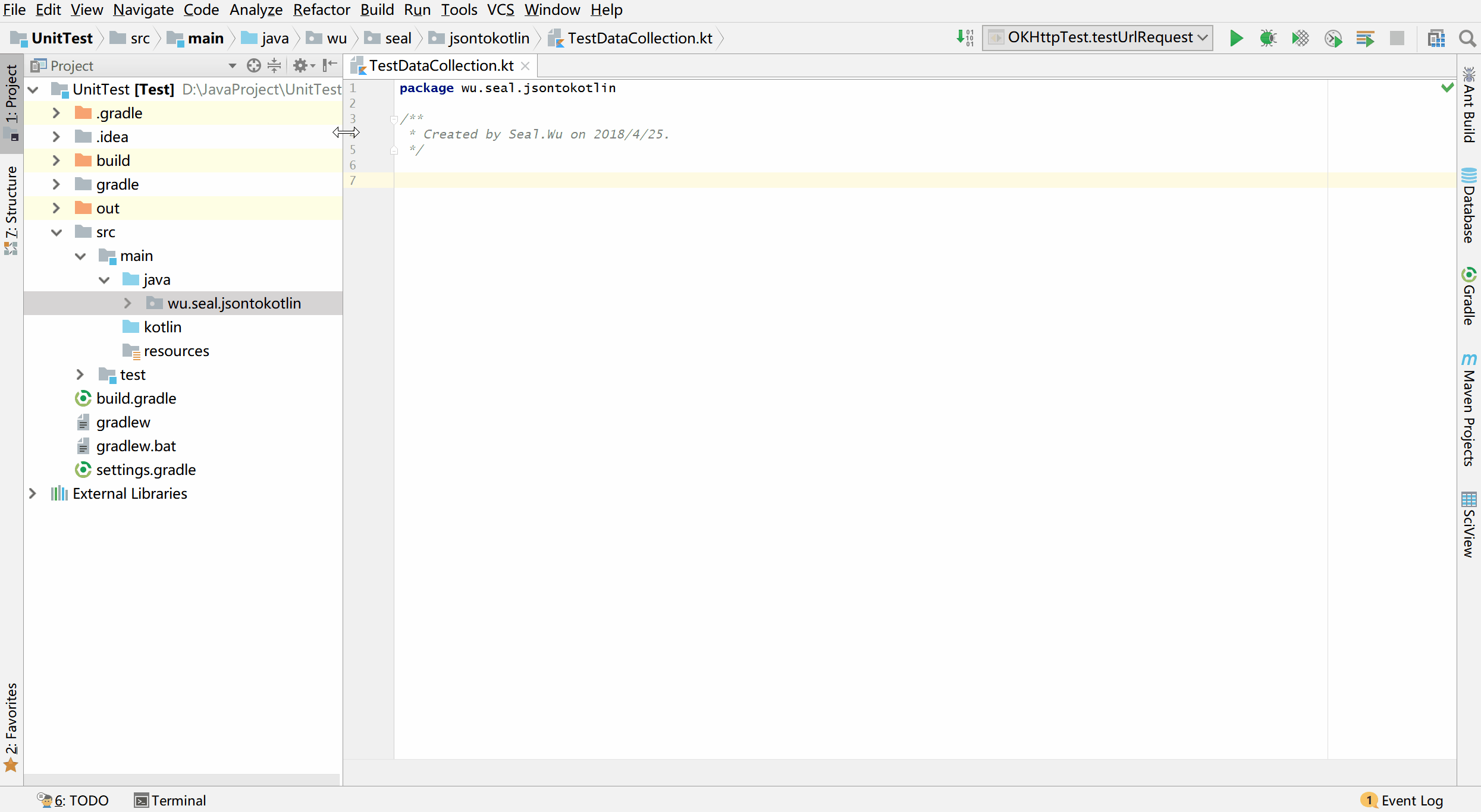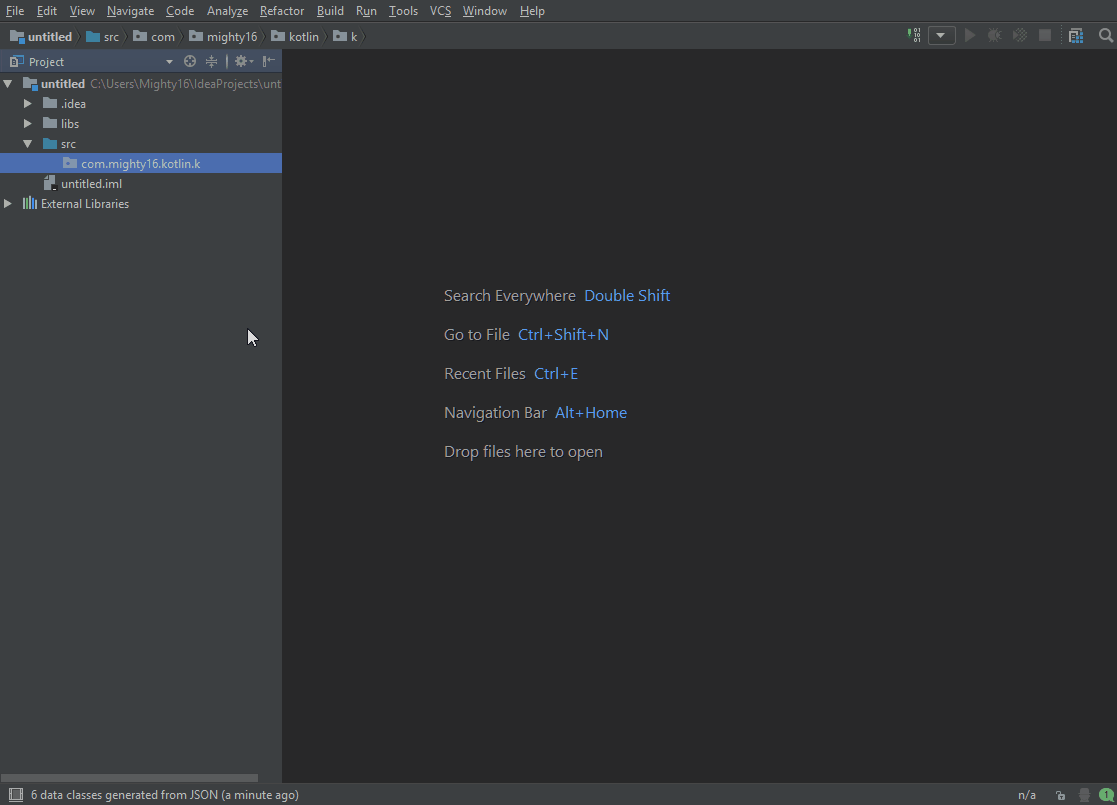

- Json class generator kotlin zip file#
- Json class generator kotlin android#
- Json class generator kotlin code#
- Json class generator kotlin download#
Val myJson = resp.peekBody(2048).string() // peekBody() will not close the response Val resp = chain.proceed(chain.request())



Private val okHttpClient = OkHttpClient.Builder() Private val gson = GsonBuilder().setLenient().create() Private external fun baseUrlFromJNI(boolean: Boolean): StringĬlass Failure(val e: Throwable) : ApiState()Ĭlass Success(val data: Any) : ApiState() Now make a new package, recommended name is: “networkService”
Json class generator kotlin zip file#
kt files in a zip file.Ĥ.Ğxtract zip file and place converted.
Json class generator kotlin download#
Get json string from your api response.ģ.Ĝopy and paste the json to web site and download converted. Implementation(":kotlinx-coroutines-android:1.4.3")Ģ. Implementation("androidx.lifecycle:lifecycle-runtime-ktx:2.3.1") Implementation("androidx.lifecycle:lifecycle-viewmodel-ktx:2.3.1") Implementation("androidx.lifecycle:lifecycle-extensions:2.2.0") Implementation("3:logging-interceptor:4.4.0") // for cache
Json class generator kotlin android#
How do you make a network call with retrofit, GSON and Coroutine in MVVM pattern in your Android project?ġ.Ědd Below all libraries(Gradle KTS), If you are using gradle make some chage. Var mUser = omJson(myJson, UserData::class.java) GSON is not for only Android you can use it in your any Kotlin or JAVA project.
Json class generator kotlin code#
You just can use GSON which is developed by google. Level Up Coding Use Git like a senior engineer Christophe Beyls Kotlin JSON Benchmark on Android (2022): Moshi vs Kotlin Serialization Gaetano Piazzolla in Dev Genius Spring Boot 3 with Java. The JSON To Kotlin Data Class-Plugin Create a Kotlin data class from JSON code automatically. Val personData = personSpec.Which library should I use for data parsing in Kotlin? Val serializer = personSpec.getSerializer() // KSerializer create serializer customized to a definition dynamically build hierarchical json definitions That seems valuable to me… I’d like to be able to dynamically accumulate json structure into some kind of JsonSpec and then be able to serialize/deserialize from that. It sounds like what wants is to be able to construct JSON (de)serializers at runtime. Actually you can’t work with dynamic types in dynamic typed languages - they just decorate hierarchical structures which consist of primitive types for you. And yes, you can’t work with dynamic types in static typed languages. When you have already known static typed json payload - you just define your dataclass and produce it’s instance from payload using Gson|Jackson. If you have more complex case you can use abstract class|interface and produce it’s children for different node types. I define status array in my target type and use adapter which read integer or array from json field and produces array always. For example i have “status” field in server payload which can be array or integer. They gives you “adapters” for serializing|deserializing specified nodes to minify brain damage from case-sensitive node types. Or you can use one of mapping solutions like Gson|Jackson. For example JsonObject tree which is from-the-box solution in jdk. Let's say this is my value class: JsonClass (generateAdapter true) JvmInline value class CustomDate (val value: String) and this is my object that contains a attribute with the value class shown. Data class is a simple class which is used. In Kotlin, these are called data classes and are marked with data. Standard way to map dynamic (badly engeneered) json|xml api payload is to build hierarchical structure. I hava a value class in my android project (kotlin) and I want to parse a object, that contains this value class as type for a attribute, to json. Online tool to convert json files to kotlin. Codegen simplifies your build process by generating server stubs and client SDKs for any API defined with the OpenAPI specification. Even using reflection you manipulate already resolved types. But what will you do with those instances out of this script? Every type in your ‘native’ code must be resolved in compile-time, for casting you also use resolved types. json-schema (fisxoj) Supports: 2019-09 draft-07, -06, -04 Compliance: This implementation documents that you must set resolve-remote-references to nil to produce specification-compliant behavior. For example, you can generate&run kotlin script|java script|python etc from your ‘native’ code and in it you can define new type and produce its instances.


 0 kommentar(er)
0 kommentar(er)
